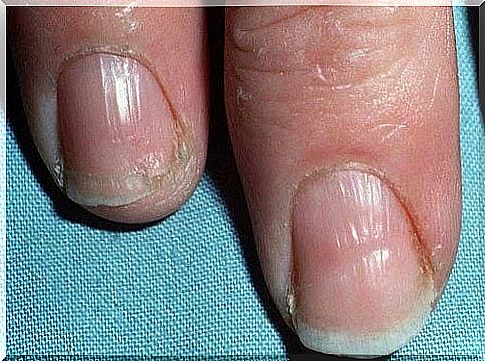10 Symptoms Of Thyroid Disorders
It is very important to know the symptoms of thyroid disorders in order to treat them early and avoid complications.

Thyroid disorders are very common in adulthood, which can lead to various physical and emotional complaints. Here you can find out what the symptoms of thyroid disorders are.
The thyroid regulates the body’s metabolism. For example, it determines how fast you burn calories or how fast your heart beats. It is also responsible for a balanced hormonal balance.
The three most common thyroid disorders are hypothyroidism (underactive thyroid gland), hyperthyroidism (overactive thyroid gland) and thyroid nodules.
Each disorder has different health effects, but some symptoms are common to all. Then you will learn more about the 10 most common symptoms of thyroid disorders that you should definitely be aware of.
Fatigue and exhaustion are one of the symptoms of thyroid disorders
If you sleep between 8 and 10 hours and still feel tired and feel the need to take an afternoon nap, this may be related to the production of thyroid hormones (hypothyroidism).
The thyroid gland plays an important role in regulating the energy balance, so exhaustion can be a sign of a disorder.
Weight loss or gain

As mentioned earlier, the thyroid regulates the metabolism that is responsible for burning calories. If there is sudden weight gain, it could be a sign of hypothyroidism. The thyroid may not make enough hormones.
However, if you suddenly lose weight for no reason , it could indicate an overactive thyroid.
Mood swings
An unbalanced hormone balance can lead to emotional problems.
If you suddenly start feeling nauseous, depressed, and having unexplained mood swings and feelings of anxiety, this may be an indication of a thyroid disorder.
Pain

If you suddenly suffer from muscle, joint or tendon pain, this could also indicate an unbalanced hormone balance due to thyroid problems.
Fertility problems
Imbalanced thyroid hormone levels can lead to fertility problems and also negatively affect the menstrual cycle or libido.
Feeling cold
The thyroid regulates body temperature and is responsible for keeping the body warm.
If you suddenly suffer from cold hands or feet, or if the rest of your body feels cold, this can also be an indication of thyroid and metabolic disorders.
Changes to the skin, hair and nails

Dry skin, hair loss, or split nails can also be caused by hypothyroidism. These symptoms are slow to multiply and require appropriate treatment to prevent them from becoming chronic.
constipation
When the thyroid’s hormonal activity decreases, all body processes slow down and the organs have difficulty coping with their functions.
This can lead to digestive disorders, for example: nutrients are not properly absorbed and residues are not properly discharged. The result can be severe constipation.
Cognitive complaints

People with thyroid disorders often complain of poor memory and difficulty concentrating. This is due to the reduced production of hormones, which slow down the body’s functions.
Voice and throat
With thyroid disorders, the gland is very likely to become inflamed or enlarged. If this is the case, you may experience a sore throat, snoring, malaise, swollen throat, or hoarseness, for example.
What can be done about these symptoms?

In most cases, thyroid disorders are only discovered at an advanced stage, as the early symptoms are easily mistaken for other ailments.
It is therefore important to know the symptoms and to have an early diagnosis made. If symptoms are ignored, complications can arise that are difficult to control.
So if you notice any of several signs that could indicate thyroid problems, you should definitely see a doctor. He can examine you accordingly. If you have a family history, regular check-ups are highly recommended.









